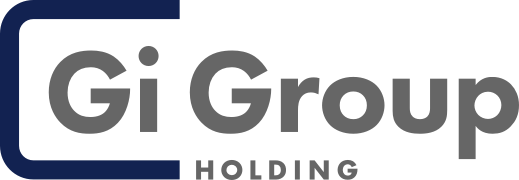The role of AI in a People-centric company

There’s basically no business sector on earth that hasn’t been impacted by advances in practical usage of artificial intelligence (AI) in some way. Sources like Authority Hacker and National University online report that 77% of businesses are using AI to a degree in their daily operations. Moreover, 83% of companies say that AI usage and integration is a top priority for the business. Gi Group Holding ranks among these organisations. As Luca Orlassino, Global R&D Senior Manager (AI) explains, “Gi Group Holding’s key priority in the use of AI is the ‘augmentation’ of recruitment processes. More specifically, in the last 24 months, we have been concentrating our efforts on the candidate screening phase of such processes. Screening, while not necessarily requiring the most distinctively human skills to be performed, is an operational step that is highly time-consuming. It involves processing of huge volumes of candidate information, which can generally be done more efficiently by machines.”
Benefits for the recruitment industry
While AI-driven tools improve processes, including clearly enhanced outputs for process beneficiaries, it is also true that companies in the recruitment industry benefit from AI in areas such as time management, resource planning and much more.By freeing up our recruiters’ time, which would otherwise be dedicated to less demanding, high-volume activities, our highly skilled professionals, thanks to AI tools, can now devote their trained cognitive and relational competencies to assessing motivational drives and competence-fitness matches between candidates and clients when reviewing job openings. They can also focus on managing the resulting client-candidate relationships where elements of human intelligence and interaction help ensure better alignment between both sides and achieve success at the candidate-vacancy level.
Luca Orlassino clarifies
Data and AI tools are great partners but they need to be watched
On an evolutionary basis, bias is a natural part of human behaviour which cannot be completely avoided. Since AI models are usually “trained” on datasets resulting from past human activity, the possibility that they inherit human pitfalls is real. Fortunately, there are techniques which can be applied to preventing human-originated bias from being transferred to AI models. “At Gi Group Holding, we take particular care in the pre-processing and in the balancing of our training datasets. This prevents sensitive information from being used and underrepresented categories from being unfairly penalised in our models’ outputs. Anonymisation and synthetic data generation are amongst the techniques which can contribute to mitigating or eliminating bias-related issues,” underscores Luca Orlassino. Beyond processes and procedures, teams at Gi Group Holding also comply with policies aimed at preventing the misuse of AI tools and the development and adoption of potentially harmful technologies. Employees directly involved in the development of AI-enabled systems work in close collaboration with the Holding’s Compliance Department and extensive training is provided on the recent regulatory evolution; even anticipating the release of new norms such as the EU AI Act of 2024.





